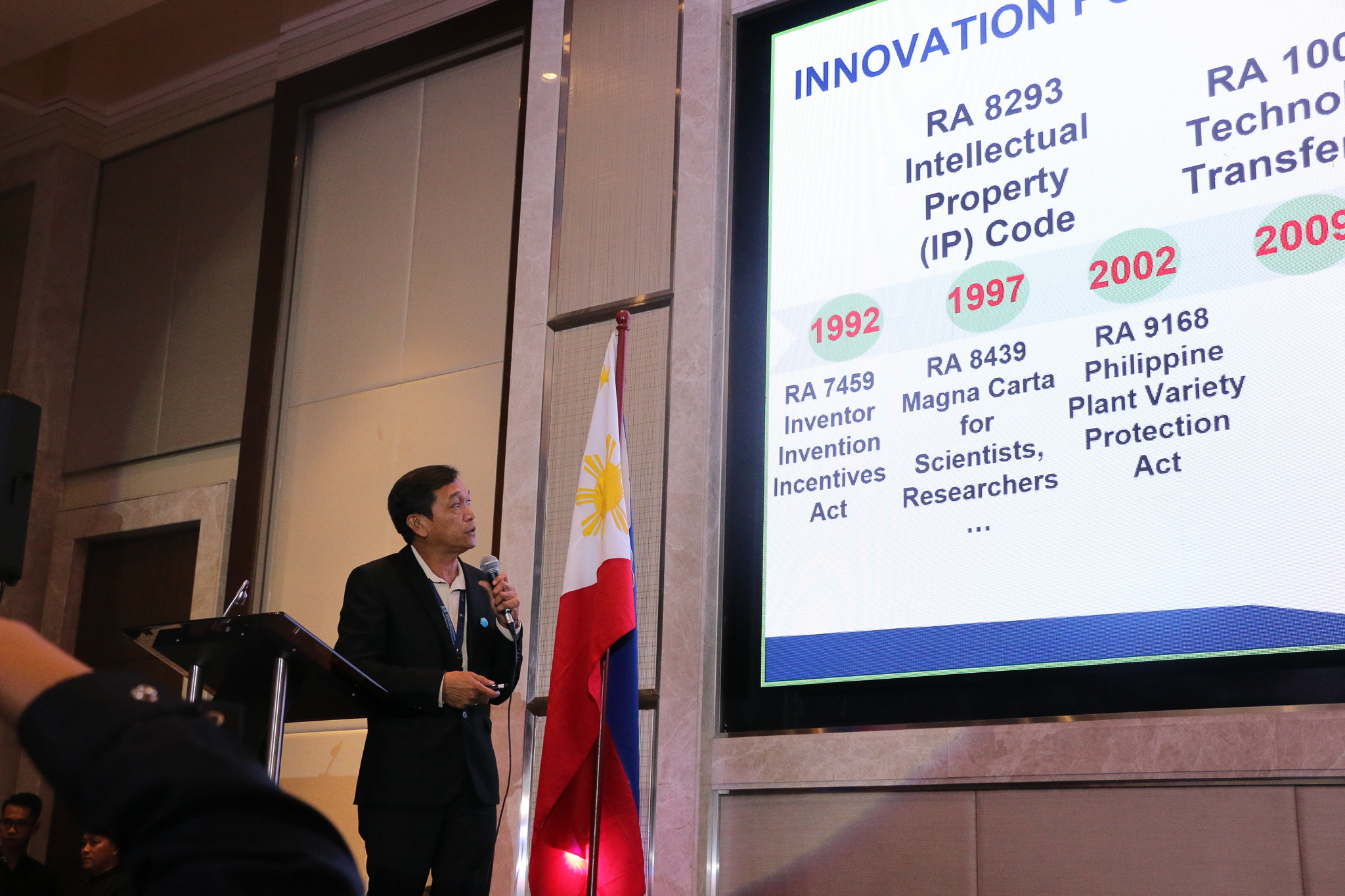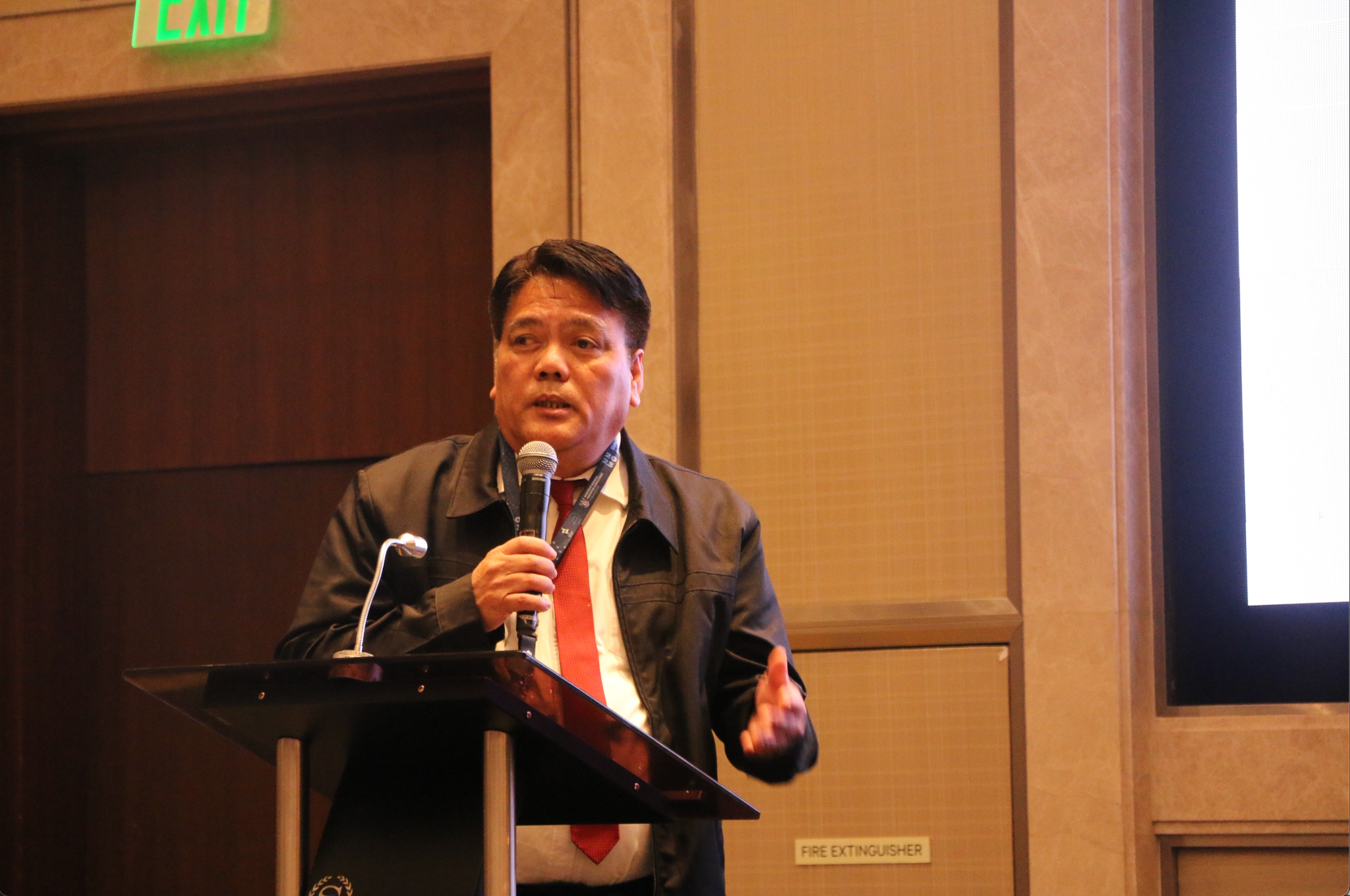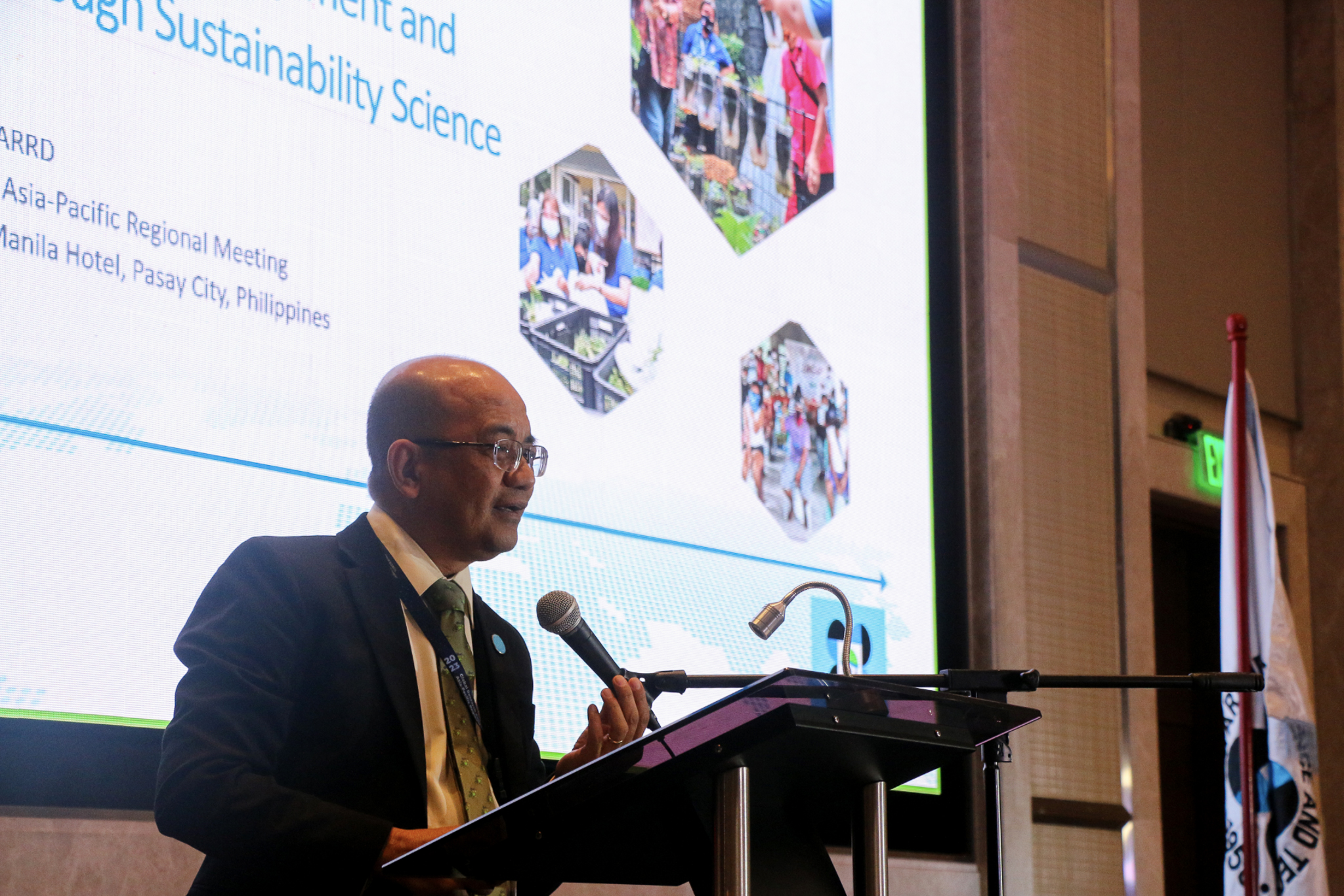The Philippine Council for Agriculture, Aquatic and Natural Resources Research and Development of the Department of Science and Technology (DOST-PCAARRD) highlights ‘sustainability science’ and other strategic science interventions at the 2023 Global Research Council (GRC) Asia-Pacific Regional Meeting this October 18–20, 2023 in Pasay City.
Together with other delegates from different funding agencies and institutions worldwide, DOST-PCAARRD discussed its approaches to sustainable research and development (R&D), technology transfer and commercialization, and creating a lasting impact on communities.
Dr. Reynaldo V. Ebora, Executive Director of DOST-PCAARRD, shared how the agency applies sustainabillity science in its research efforts. He emphasized that research should be a collaborative endeavor, engaging not only scientists and researchers but also the very communities and industries it seeks to serve.
Dr. Ebora said that sustainability science is a different take on scientific interventions that focus on a healthy connection between human society and the environment, specifically within interconnected social-ecological systems. It encourages use of multidisciplinary approaches to better understand the interplay between humans and the environment, as well as the impact of this interplay on the challenge of sustainability.
“Sustainability science puts great emphasis on stakeholder collaboration, participation, and engagement. To support good governance for a sustainable society and realize the full potential of sustainability science, it is necessary to build and strengthen connections among stakeholders, including governments, academe, scientists/experts, the private sector, non-government organizations, and civil society.” Dr. Ebora explained.
“DOST-PCAARRD, guided by an unwavering commitment to sustainable development, continues to approach various multifaceted challenges in the agriculture, aquatic, and natural resources (AANR) sector through the concept of sustainability science and reshaping the way research is conducted and its profound impact on stakeholders.” He added.
Meanwhile, Director Noel Catibog of DOST-PCAARRD’s Technology Transfer and Promotion Division talked about the ethical considerations when doing technology transfer and commercialization initiatives. As a public servant, he highlights the significance of ensuring accountability and transparency in dealing with technology transfer negotiations.
“Maraming ethical pitfalls ang involved in R&D to technology transfer especially when you’re dealing with spin-offs because these are private entities making use of technologies generated from government-funded R&D. And so, policies, evaluation, process, and other mechanisms should be in place to minimize any concern on ethics and conflict of interest,” Dir. Catibog further explained.
To ensure successful technology transfer initiatives, Dir. Catibog recommended considering key factors such as conflict of interest, transparent evaluation, accountability, and fairness in any transaction.

Talking about the importance of impact assessment on scientific interventions, Dr. Ernesto Brown of the Socio-Economics Research Division detailed the significance of ex-ante assessment in proposal evaluation, especially in setting priorities for funded projects and programs. According to him, identifying such details will help funding agencies and research institutes determine the value of such initiatives and better allocate resources accordingly.
Dr. Brown explained that setting priorities using ex-ante assessment can help address the need to take advantage of a project’s potential or worth by estimating the project’s expected return on investment. It also establishes quantitative criteria to further enhance objectivity in priority setting. This can be utilized within subsector or within commodity prioritization since analysis is done at the project level.
“In DOST-PCAARRD, we have done 26 ex-ante assessments and these really informed much of the R&D decision of DOST-PCAARRD. Through the ex-ante analysis, we have determined that our industry strategic plans and the projects consisting of those plans are really viable investment projects for the society because they generate enough returns,” Dr. Brown said.

Global effort towards finding sustainable R&D solutions
The GRC Asia-Pacific Regional Meeting is a 3-day event that welcomed over 120 delegates from different countries mainly in the Asia Pacific region. Centering on the topic of “Sustainable Research,” the 2023 GRC Asia-Pacific Regional Meeting promoted data sharing and best practices among its members, as well as the expansion of public support for R&D. International organizations and research institutions from across the globe shared their views and ideas on top current and emerging regional issues.
GRC is a virtual organization, composed of the heads of science and engineering funding agencies from around the world, dedicated to promote the sharing of data and best practices for high-quality collaboration among funding agencies worldwide.

